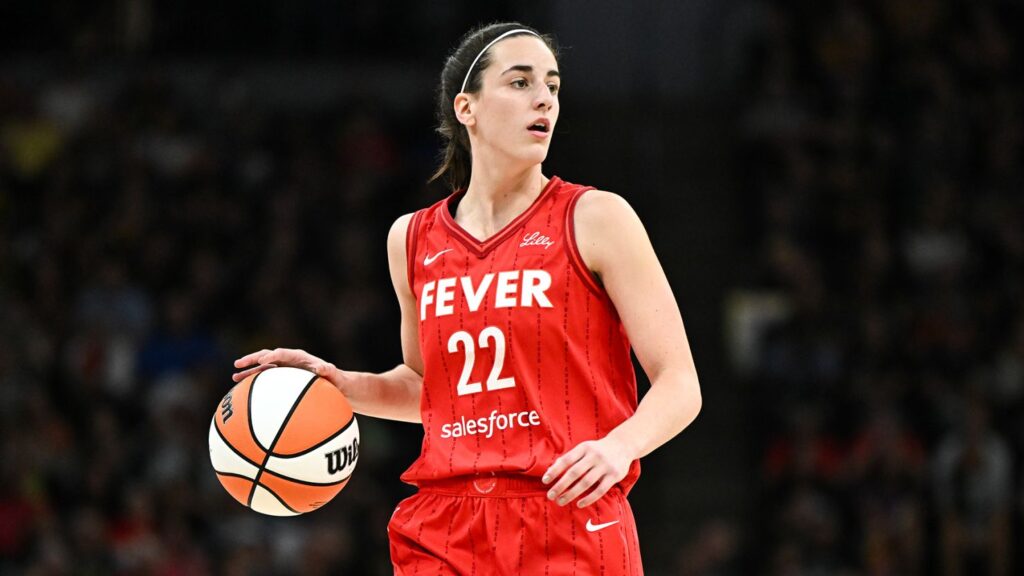Caitlin Clark, a name now synonymous with excellence in women’s basketball, caitlin clark europe has been captivating audiences across the United States with her jaw-dropping performances and record-breaking stats. But as her collegiate career wraps up and professional opportunities unfold, many are wondering: Is Caitlin Clark heading to Europe? The buzz surrounding “Caitlin Clark Europe” is growing louder—and for good reason.
In this comprehensive article, we’ll explore the possibilities of Caitlin Clark playing in Europe, her international appeal, potential European teams, the cultural shift for American athletes abroad, and what it could mean for women’s basketball globally.
Who is Caitlin Clark?
Caitlin Clark rose to national prominence as a guard for the Iowa Hawkeyes, where she redefined what it means to dominate the court. With her long-range three-pointers, court vision, and basketball IQ, Clark earned comparisons to legends like Stephen Curry and Diana Taurasi.
By the end of her college career, she shattered multiple NCAA records, including:
- Most points in NCAA Division I women’s basketball history
- Fastest player to reach 3,000 career points
These accomplishments have cemented her status as one of the greatest college basketball players of all time.
The Growing Interest in “Caitlin Clark Europe”
Why Europe?
European clubs offer:
- Lucrative contracts (often more than WNBA salaries)
- Top-tier competition, especially in leagues like Turkey, Russia, Spain, and France
- Offseason opportunities that align with WNBA schedules
- A global platform to expand personal brands
For Caitlin Clark, Europe represents a chance to not only continue her basketball journey but also to grow her global influence.
Historical Precedent
Many WNBA legends have spent part of their careers overseas:
- Diana Taurasi (Russia and Turkey)
- Breanna Stewart (Russia and Spain)
- Brittney Griner (Russia)
- Sue Bird (Russia and Israel)
The pattern is clear: to maximize earnings and expand competitive experience, Europe is a well-traveled path for elite players.
European Teams That Could Sign Caitlin Clark
https://grobalnews.co.uk/As the search for “Caitlin Clark Europe” gains momentum, fans and scouts are speculating which European teams could be interested. Here are a few top contenders:
1. Fenerbahçe (Turkey)
One of Europe’s richest and most successful women’s basketball clubs. With a strong American presence and recent EuroLeague success, Fenerbahçe could offer Caitlin a substantial contract and a chance to play with elite international talent.
2. UMMC Ekaterinburg (Russia)
Although political tensions have affected this club’s operations, it remains historically one of the most dominant teams in Europe. Caitlin Clark could elevate the brand even further if relations stabilize.
3. Perfumerías Avenida (Spain)
Spain’s top women’s basketball team, known for its passionate fans and competitive roster. A move to Spain would be appealing due to cultural familiarity and a mild transition for American players.
4. ASVEL Féminin (France)
Partly owned by former NBA star Tony Parker, ASVEL is rising in prominence. The French league is competitive and culturally appealing, making it an ideal destination for high-profile players like Clark.
Caitlin Clark’s Appeal Beyond the Court
1. Marketing and Brand Power
Caitlin Clark is more than an athlete—she’s a brand. Whether it’s her Nike NIL deals or her massive social media following, she commands a wide audience. Taking her talents to Europe could open doors to international endorsements and collaborations.
European markets are eager for charismatic, high-performing athletes, especially those who bring American excitement and storytelling. Clark fits this mold perfectly.
2. Inspiring a Generation
By possibly moving to Europe, Caitlin Clark could inspire a new generation of young girls not just in the U.S., but globally. Women’s basketball is on the rise internationally, and Clark’s involvement would only accelerate its popularity.
Challenges Caitlin Clark Might Face in Europe
1. Cultural Adjustments
Living in a new country can be a challenge. From language barriers to daily life changes, adapting to Europe isn’t always seamless.
2. Different Playing Style
European basketball tends to be more structured, tactical, and team-oriented compared to the high-octane, isolation-heavy American style. Clark would need to adapt her game to fit into European systems—but her high IQ and versatility make this transition likely to be smooth.
3. Travel Demands
Unlike the U.S., where teams are mostly domestic, European basketball involves extensive travel across borders for league and EuroLeague matches. Managing fatigue and staying healthy would be crucial.
What European Fans Think of Caitlin Clark
European basketball fans are already paying attention to Caitlin Clark. Clips of her highlight-reel performances frequently go viral on European sports pages, and international sportswriters are speculating on her future abroad.
If she were to join a European club, ticket sales, viewership, and local engagement would likely skyrocket—mirroring what she did for Iowa’s women’s program.
Is the Move to Europe Likely?
While Caitlin Clark was drafted by the Indiana Fever and currently making waves in the WNBA, a future stint in Europe is not only plausible—it’s probable.
Most WNBA players supplement their income and development by playing overseas during the offseason. Given her competitive nature, financial potential, and global appeal, a European chapter seems likely in the next few years.
Conclusion: The Global Rise of Caitlin Clark
The phrase “Caitlin Clark Europe” is no longer just speculation—it’s a conversation happening in locker rooms, boardrooms, and basketball forums worldwide. As the sport of women’s basketball expands across continents, players like Caitlin Clark are the catalysts pushing the game to new heights.
Whether or not she signs with a European team this season or a few years down the road, one thing is certain: Caitlin Clark’s journey is only beginning, and the world—including Europe—will be watching.


